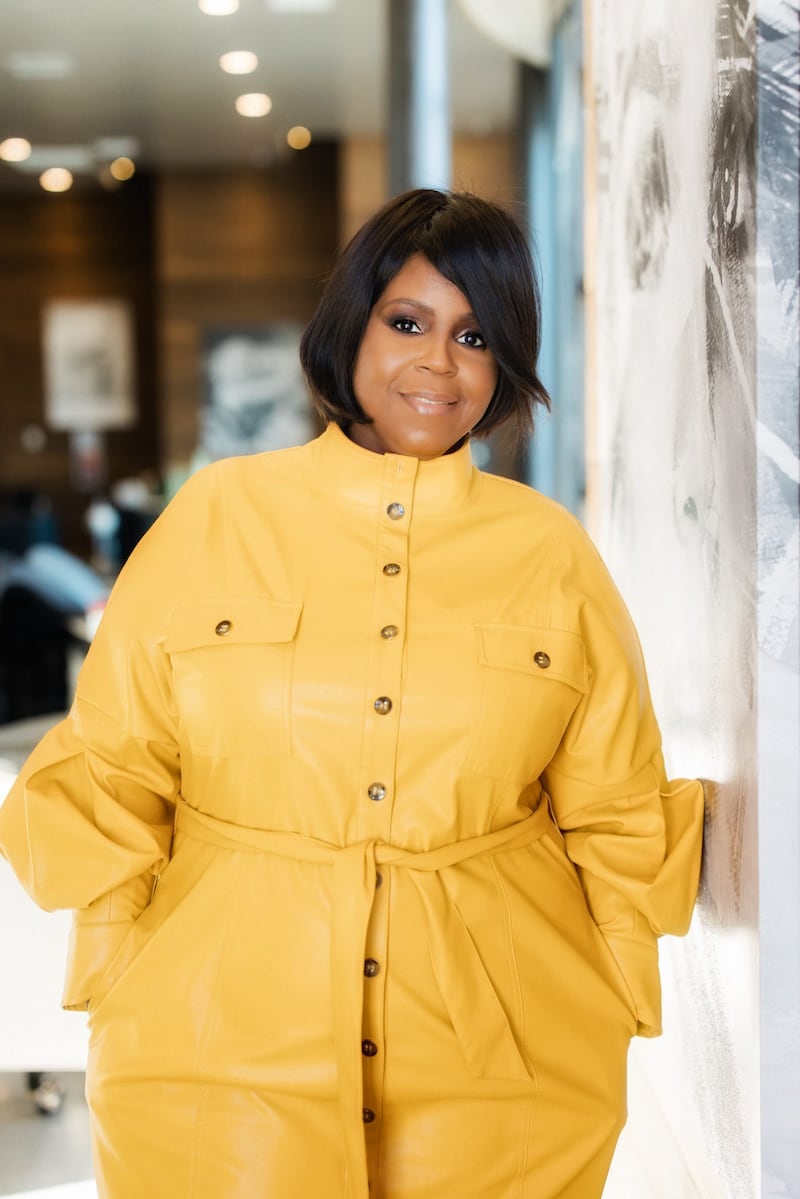The Founder Series is a column by and about Utah founders and how they got to where they are today. Click here to read past articles in the series.Igrew up in Trenton, New Jersey, and worked for Merrill Lynch there for almost nine years. While with the company, I shifted positions often because they really believed in promoting from within. I was able to be moved around from Human Resources to being the Executive Assistant to the President of Technology.
In my first role, I was an advisor for people who would call in to figure out their health insurance. Then I moved on to the recruiting department, where I learned so much about time management working under five executive recruiters who hired about 10,000 people a week for all of the domestic international Merrill Lynch executives.
From the recruiting department, I transitioned to being an admin for an executive in technology, then an admin for five high-level executives in relationship management. In my last four years before leaving the company, I was a recruiting coordinator for Global Wealth Management, acting as the gateway for people seeking to become financial advisors.
Around this time, I was at a point in my life when I was heavily into church, and so I began a community newsletter that was really well-received. The church members loved the content and graphics, which I created myself. When I left the church, I asked myself, “Now that I’m gone, should I continue the newsletter?”
There was this guy in my neighborhood named Darrin Morris; he had a newspaper called CREAM, and it showed the whole neighborhood, such as the people who graduated, the people having children, the people getting a new job—anything positive happening in the community.
I noticed how people would react every Friday when the new issue came out—everyone would drop what they were doing to get a copy. After I noticed how they responded to seeing themselves in the newspaper, I thought to myself, “That’s it. I don’t want a newspaper, but I’m going to create a magazine.”
I began researching how to put a magazine together and got a publisher. Once I figured out how to design the magazine, I researched John H. Johnson, the founder of Ebony Magazine, and then Susan L. Taylor, the former editor-in-chief of Essence—and the woman who got Essence where it is today. What I learned from John H. Johnson was about going into a market he wasn’t familiar with when he started in Chicago. He had to learn key factors about the city and put news out that reflected what he saw. What I admired about Susan L. Taylor was how she was so adamant about Black women, and she was also a single mom—she went to school at night while building an empire. I spent a lot of time researching all of that and after I felt I could do it, I released my first issue of IMPACT Magazine in 2007. As soon as I showed those in my community, it just went like hotcakes. I would put out 500 copies a month and the next day, they would all be gone. I saw the success locally and then I took it around the US.

For a long time, I didn’t have corporate advertisers; my advertisers were people in my neighborhood who had businesses that I wanted to support, so I just created ads for them. For years, I didn’t receive any money for advertising; all of the funding came from my salary. I got my first sponsorship in 2018. I was elated, and it wasn’t about the money—it was really about getting this information out because I understand what it is like to hear a story and be inspired.
The magazine continued to grow without skipping a beat until I was laid off from Merrill Lynch in 2009—when Obama came into office and Bank of America bought up Merrill Lynch. I knew I had to make a decision, and it dawned on me, “I can do this full time.” I was on unemployment, and thank God for the magazine because at the time, I thought to myself, “This has to make some kind of money for me. This has to begin to pay off because I’m pouring my life into it.” That’s when I started to charge for my events and advertising—but it took a minute for it to just click and work.
My son and I went through a lot of sacrifices during this phase of my life. Up until that point, I was working a great job, had a great salary, a great house, and my son was even going to private school. I just put it in my mind that I was going after my purpose and going after my dreams 100 percent, and that’s when life really happened.
I was unemployed for about five years. During this time, I left New Jersey and moved to North Carolina in 2010, and then to Atlanta, Georgia, where we lived for 11 years. I didn’t go back to work until 2013 when I went straight back to Merrill Lynch. But this time, it was under Bank of America, which kept a portion of Merrill Lynch. Since I had worked there previously, my old supervisor Jean Kohlhepp hired me back, and I stayed there for four more years.
Relocating to Salt Lake City
In 2017, a friend of mine had accepted a job at Young Living. At the time, I had begun these five-star dinners called “The Women of IMPACT.” I honored media mogul Karen Civil, some people from the Obama Administration, and a lot of reality stars—there were 50 Black women in attendance, and it made a huge IMPACT.
The event was featured in Essence and major national media markets, and so in 2018, I held another event at the Ritz Carlton in Los Angeles. I had Vanessa Simmons, actress Aisha Hinds, Torrei Hart, and others in attendance. My friend who was working at Young Living saw the dinner and reached out to me because Young Living was looking for brand partnerships with Black creators. She asked me if it would be possible for us to have a partnership, and I agreed. To solidify the partnership, I met with Lauren Walker, the chief supply chain officer of Young Living at the time, and she was like, “Tunisha, I think you should come to Utah. You would be really surprised; your magazine is needed. I think you’ll do well.” And I responded, “There are no Black people in Utah. I’m not coming,” but she insisted I would be surprised and invited me to the 2019 Sundance Film Festival.
I declined her invitation, and to my surprise, I saw women like Ava DuVernay and Oprah Winfrey in attendance at Sundance that year. I was so hurt and so mad I didn’t come. That was one of the biggest, worst things I’ve ever done in business, and so I promised myself I’d never miss another Sundance.
In 2020, I came out to Sundance and did a film screening for a Black indie film. About 75 Black people came. I was shocked there were so many Black people, and I met so many great people like Emma E. Houston, the late Cameron Williams, and other incredible individuals in Salt Lake City who are doing amazing things.
I was so inspired by the community that I created an event called “The Who’s Who Networking Mixer” and highlighted the who’s who of Black Utah. For the event, I partnered with Facebook and William Marks, who reached out to me afterward and said, “You know, I would like to do this again. I would like to partner with IMPACT if you’re thinking about doing things out west. I just think everything you’re doing is amazing, and it could be a really great partnership if you were here.”
It didn’t take me long to say “OK.” I had already told my son I was ready to leave Atlanta because it was time. I just made up my mind to move to Utah and ended up here in January 2021.
Making an impact
Today, IMPACT Magazine is a national publication online and in print. We have at least 20,000 visitors on the website a day and about 100,000 people who read the magazine every quarter. While IMPACT is a national publication, we do events in certain places where we have the largest demographics, including Atlanta, New Jersey, LA, Houston, and of course, Salt Lake City.
Speaking of events, we have the aforementioned “Women of IMPACT” honorary brunch and dinners, and smaller networking mixers where the movers and shakers come together in different industries to network with each other to discover how they can support each other. Building this brand has been really great. We’ve received such great feedback, and I look forward to continued growth and development.
My next project
One of my latest projects is my book, “No Designation,” which came out in January. I wrote the book because people always ask me about my life, and I’m very private. If you see me online, it’s all about business; there aren’t a lot of personal things about me.
In 2014 or 2015, after an event in my hometown, one of the girls came up to me afterward and said, “We really enjoyed the celebrity you just had, but we really wanted to hear your story because you came from here and you’re doing all these great things,” and I was like, “Really? You want to hear my story?”
In the book, I talk about my mom telling me who my biological father was when I was 20 or 21 years old because she was married to my stepfather and I didn’t know. He didn’t make me feel any kind of a difference. I had no clue about it, and that sent me into this whole fit of rage and halted me in my 20s. One day, all of a sudden, I looked up and I was 26 and about to have my son.
After giving birth to my son, I went on a “spiraling staircase.” I was going up and down and around through life, just trying to figure it out and having to figure out how to stop making decisions from my trauma because that’s all I knew. That’s what the book is about, learning how to accept the things that we cannot change and then understand and decide that the choices you make are going to have a consequence.
To turn my life around, I learned to accept things because you can’t change them. As I was angry, I didn’t do all of the things I wanted to do because my rage and my rebellion had me making decisions from the hurt and trauma. I realized, “Something is not going right here,” so once I got myself mentally together—and it took a long time for that—I was able to talk about it.
In order to move forward, you have to accept the things you cannot change. You can’t blame; you can’t do all of those things where your energy is focused on the past. You have to look at where you are right now, the pros and cons, and move forward so you won’t repeat the cycle.

